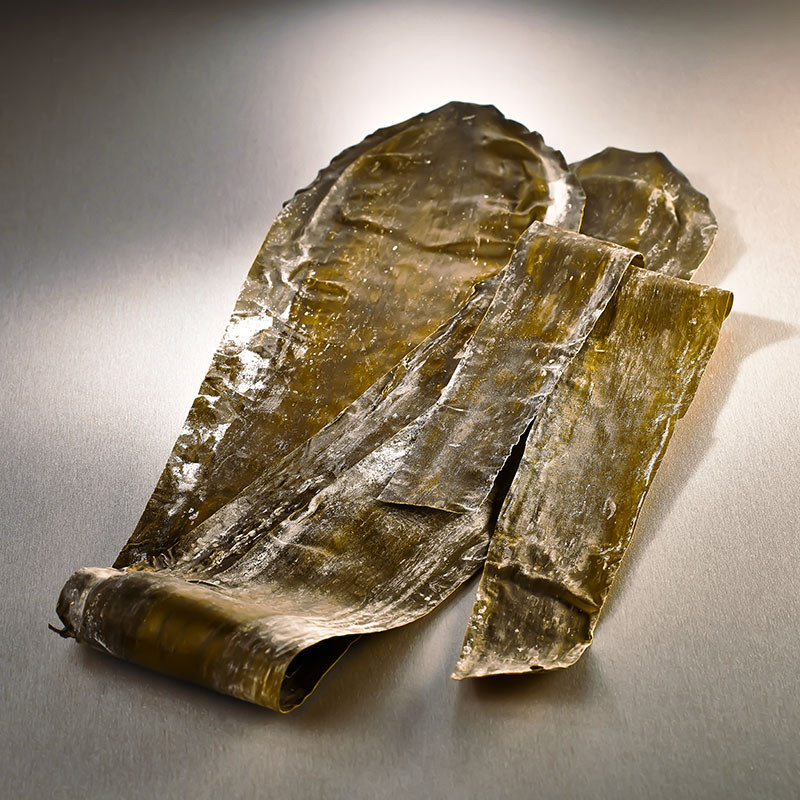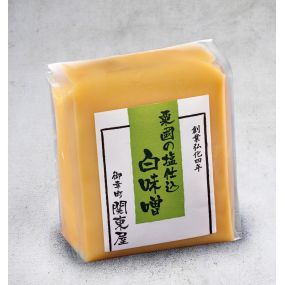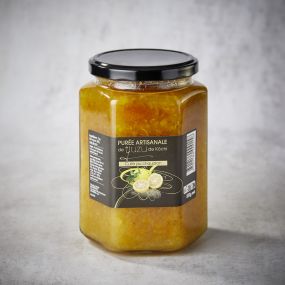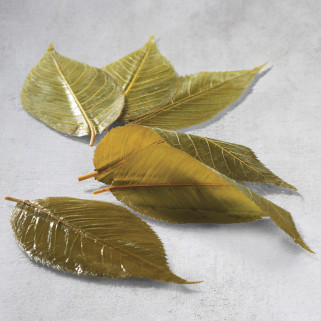Rausu kombu offered here comes from Shiretoko Peninsula shores, in the northeastern region of Hokkaidō Island and overlooks Sea of Okhotsk, an area that is very famous for its high quality and highly prized Rausu kombu.
Only a few privileged people have access to it, including our artisan, Okui Kaiseido.
Our recommendation for making your own dashi :
Soak kombu for 24 hours in cold water to soften it.
First dashi, called Ichiban dashi, is an almost pure umami broth. Synergy between kombu and katsuobushi produces and enhances clear umami taste.
Made from the finest ingredients, it has a rich golden color and no astringency as is usually the case with dashi made from other ingredients.
Clear, subtle aroma of ichiban dashi is ideal for making clear broths. Ichiban dashi itself is delicious, but it allows you to bring out flavor of other foods without paying too much attention to other ingredients.
 For a good dashi :
For a good dashi :
♦ 1800 ml of fresh water
♦ 30-40g of Rausu kombu
♦ 50g of katsuobushi (blood line should be removed)
1. Put the water and kombu in a large pot and heat over low heat
2. Slowly increase temperature to 60°C and simmer for 1 hour at this temperature to bring out maximum umami of the kombu.
3. Remove kombu and increase temperature to 85°C over high heat. When temperature reaches 85°C, add katsuobushi flakes so that they soak up water completely.
4. After waiting about 10 seconds, strain liquid through a fine-mesh cloth and let it drain naturally without squeezing katsuobushi flakes.
 Kombu contains glutamic acid, a type of amino acid with UMAMI. Glutamic acid umami can be enhanced by aging Kombu and it also increases synergistically when combined with inosine acid included in dried bonito. Kombu is also rich in dietary fiber, calcium and iodine. Its alkaline nature helps maintain a balance with acidic foods such as meat and fish.
Kombu contains glutamic acid, a type of amino acid with UMAMI. Glutamic acid umami can be enhanced by aging Kombu and it also increases synergistically when combined with inosine acid included in dried bonito. Kombu is also rich in dietary fiber, calcium and iodine. Its alkaline nature helps maintain a balance with acidic foods such as meat and fish.


















 For a good dashi :
For a good dashi : Kombu contains glutamic acid, a type of amino acid with UMAMI. Glutamic acid umami can be enhanced by aging Kombu and it also increases synergistically when combined with inosine acid included in dried bonito. Kombu is also rich in dietary fiber, calcium and iodine. Its alkaline nature helps maintain a balance with acidic foods such as meat and fish.
Kombu contains glutamic acid, a type of amino acid with UMAMI. Glutamic acid umami can be enhanced by aging Kombu and it also increases synergistically when combined with inosine acid included in dried bonito. Kombu is also rich in dietary fiber, calcium and iodine. Its alkaline nature helps maintain a balance with acidic foods such as meat and fish.
















